Popular Articles
- 10 Natural Sleep Supplements
- GABA and Insomnia
- Moderex Supplement Facts
- Does Bad Sleep Damage Your Heart?
- Sleeping Remedy by Natrol
- 7 Foods That Cause Insomnia
- Popular Sleep and Anxiety Drugs May Be Linked to Dementia
- Home Remedies for Sleeplessness
- Chamomile Tea for Insomnia
- Is Quietude Safe? Find out.
 Eating these foods may help you sleep at nightIn This Article
Foods are sometimes regarded as medicines. They contain nutrients and phytochemicals that can act in the same ways as drugs and supplements. In this way, the foods you eat can help you sleep at night or make you stay awake. Which foods can you eat to relieve your insomnia and how do they ease you to sleep? This article picks the best 10 foods that will help you sleep quicker, deeper, and better.
What we eat can affect our sleep. Some foods promote drowsiness while others cause insomnia. Foods may not act as rapidly as drugs but a habit of eating the wrong foods can still be the root cause of chronic insomnia. Foods that help us sleep at night may stimulate the production and release of certain brain chemicals. They may also simply provide relief for some underlying conditions that can interrupt sleep. On the other hand, foods that keep us awake often keep our bodies ticking late into the night, providing a reservoir of energy that disrupts the normal sleep-wake cycle. Discussed below are the foods that promote sleep. These can provide relief for your insomnia even without resorting to sedative drugs. The Kinds of Foods that Promote SleepFoods Rich in CalciumHow does calcium help put you to sleep? By increasing the production of melatonin. Melatonin is a neurohormone that contributes to the sleep-wake cycle. It is released at nightfall when it is dark. This antioxidant hormone helps calm down brain activity and promotes sleep. Calcium is also rich in tryptophan, an amino acid discussed below.
Foods Rich in MagnesiumMagnesium is another nutrient that can improve sleep. Health experts advise that calcium levels should not be raised without also raising magnesium levels. This is because, without magnesium, high calcium levels may lead to the deposition of calcium stones on different organs of the body.
When this happens in the neurons of the central nervous system, it produces a calming effect that promotes sleep. When it occurs outside the brain, it relaxes the muscles. This is also why magnesium deficiency causes restless leg syndrome and muscle spasms. These involuntary movements can disrupt sleep at night and lead to insomnia. Therefore, magnesium-rich foods can help relieve magnesium deficiency. Also, studies show that magnesium promotes slow-wave or “deep” sleep. The link between magnesium and deep sleep is well-established even in infants. Therefore, magnesium does not only increase the duration of sleep but also improves sleep efficiency. These effects allow for more restful sleep and a refreshing feeling after waking.
Foods Containing L-TryptophanL-tryptophan is an essential amino acid that plays multiple roles in brain chemistry.
However, the major mechanism by which tryptophan improves sleep involves serotonin and melatonin. Melatonin is produced from tryptophan in a 4-step reaction with serotonin as an intermediate. Serotonin is a neurotransmitter known to improve mood. Therefore, it can promote sleep by relieving depression. Melatonin, however, is the hormone released from the pineal gland during the night. It directly promotes sleep and is commonly used as a dietary supplement and sleep aid.
Complex CarbohydratesWhile complex carbohydrates are often substituted for low carbs, they are good for sleep. Low-carb foods are known to promote insomnia. In contrast, complex carbohydrates are filling. Therefore, they can relieve hunger without necessarily adding caloric load. Additionally, complex carbohydrates are nutrient-dense foods. Food sources of complex carbohydrates recommended for improving sleep include whole grains and vegetables. These foods have the added advantage of also being low-glycemic. This means that they provide a more stable glucose level and, therefore, do not cause insomnia through glucose-fueled highs and sugar crashes. Complex carbohydrates contain tryptophan which is known to help ease the body into a deep sleep. Therefore, if you are looking for a bedtime snack to help you sleep, whole grain toasts or cereals may help.
|
| How B Vitamins Help Sleep |
|
Food sources of B vitamins include liver, kidney, beef, fish eggs, leafy vegetables, yeast, wheat flour, brown rice, oatmeal, legume, whole grains, nuts, seeds, seafood, and poultry.
Eight Foods to Help You Sleep
1. Banana
Banana is a food that contains all the right nutrients to promote sleep. It is an excellent source of potassium and magnesium as well as tryptophan.
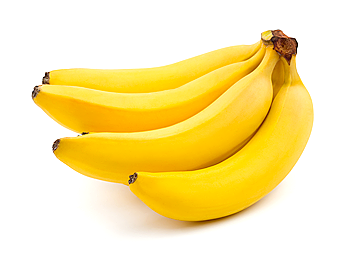 Potassium and magnesium are involved in muscle activities and nerve conduction. By supplying these nutrients, banana can help calm overactive neurons and reduce brain activity at night. Furthermore, potassium and magnesium are useful for relaxing the muscles. Therefore, they can also promote sleep by providing relief for those suffering from nightly periodic limb movements.
Potassium and magnesium are involved in muscle activities and nerve conduction. By supplying these nutrients, banana can help calm overactive neurons and reduce brain activity at night. Furthermore, potassium and magnesium are useful for relaxing the muscles. Therefore, they can also promote sleep by providing relief for those suffering from nightly periodic limb movements.
The tryptophan in banana serves as a precursor for serotonin and melatonin.
Increasing serotonin levels improves the mood and can promote sleep by relieving depression and other mood disorders. Serotonin is also used to synthesize melatonin.
Overall, banana can promote sleep by multiple mechanisms and it should be your go-to food for sleepless nights.
2. Tart Cherries
Tart cherries are also known as sour cherries.
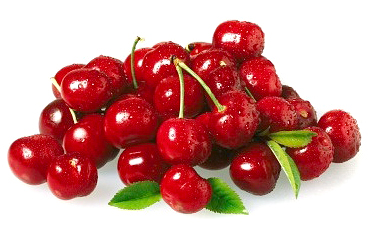 Sour cherry is a good source of many nutrients that can promote sleep. These include B vitamins as well as magnesium and potassium. However, the most interesting sleep-inducing compound in tart cherry is melatonin.
Sour cherry is a good source of many nutrients that can promote sleep. These include B vitamins as well as magnesium and potassium. However, the most interesting sleep-inducing compound in tart cherry is melatonin.
Tart cherry is only one of two fruits known to contain melatonin (the other one is grapes). But can the melatonin in cherry promote sleep? Available studies show that the answer is a resounding yes.
Researchers found that drinking a glass of tart cherries can quickly put you to sleep.
Therefore, besides all the benefits provided by the antioxidants in cherry, its melatonin content supports its folkloric use as an insomnia remedy.
3. Grapes
Grape provides the same benefits as cherries. It is also rich in antioxidants as well as B vitamins, calcium, potassium, and magnesium. And also melatonin.
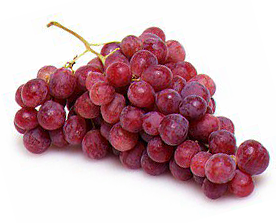 Italian researchers reported the melatonin contents of 8 varieties of grapes in the Journal of the Science of Food and Agriculture. Of the grape varieties tested, they found that Nebbiolo grapes had the highest concentration of melatonin followed by Croatina grapes and then Merlot grapes.
Italian researchers reported the melatonin contents of 8 varieties of grapes in the Journal of the Science of Food and Agriculture. Of the grape varieties tested, they found that Nebbiolo grapes had the highest concentration of melatonin followed by Croatina grapes and then Merlot grapes.
Since grapes are used to make wines, some of their melatonin content may survive the production process.
However, it is advised that grapes should be used as sleep aids rather than wines because alcohol in wines can disrupt sleep.
4. Oatmeal
Oatmeal is not just a breakfast meal, it should also be a nighttime meal because it can help you sleep.
 First, oatmeal is a good source of complex carbohydrates. Therefore, it does not produce a sugar-high common with sugary foods. Also, it does not keep the digestive system active for long. Lastly, it is filling and can, therefore, help reduce food cravings.
First, oatmeal is a good source of complex carbohydrates. Therefore, it does not produce a sugar-high common with sugary foods. Also, it does not keep the digestive system active for long. Lastly, it is filling and can, therefore, help reduce food cravings.
Oatmeal is also a good source of calcium, magnesium, and potassium. These nutrients can help relax the body and ease it into a good night’s sleep.
5. Whole Grain Cereals
Whole grain cereals also provide the same benefits as oatmeal. They are healthy snacks made of complex carbohydrates that can increase the bioavailability of tryptophan.
6. Almonds
Almond is the ideal nut to help you sleep. Even if you cannot tolerate the nut, you can still get the same benefit from almond butter.
 Almond is rich in B vitamins, calcium, iron, zinc, potassium, and magnesium. These are nutrients that help regulate brain activity, relax the muscles, and increase the secretion of sleep-inducing compounds such as melatonin.
Almond is rich in B vitamins, calcium, iron, zinc, potassium, and magnesium. These are nutrients that help regulate brain activity, relax the muscles, and increase the secretion of sleep-inducing compounds such as melatonin.
Also, almond is rich in 14 amino acids including tryptophan which is used to synthesize serotonin and melatonin.
Lastly, almonds can help regulate your blood sugar levels. By preventing wild fluctuations in blood glucose levels, this nut allows the body to enjoy a restful sleep.
7. Turkey
While your choice of protein foods is endless, it is important to choose a protein source that is especially rich in tryptophan. When tryptophan is the predominant amino acid, it helps reduce the competition with similar amino acids that share the same transport mechanism for crossing the blood-brain barrier.
Turkey is not only a good source of B vitamins, calcium, magnesium, and potassium but it is also the best source of tryptophan.
Therefore, you should get the renowned post-meal sleepiness associated with this Thanksgiving delicacy every day.
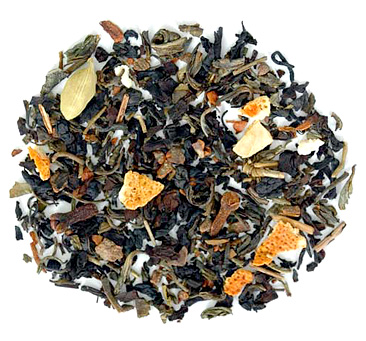 8. Decaf Teas
8. Decaf Teas
Teas are relaxing and they contain the right ingredients to help you sleep. Unfortunately, they also contain caffeine.
Caffeine is a stimulant that can keep you awake at night and because its effect can last awhile, it is to be avoided in the evening.
Teas such as chamomile and green teas are known for their healthful, relaxing, and sleep-inducing effects. Therefore, you should get decaf varieties of these teas to drink in the evenings.
Sources
http://naturalnews.com/039339_insomnia_home_remedies_favorite_foods.html
http://www.huffingtonpost.com/2013/06/21/sleep-deprivation-appetite-boosting-molecule_n_3467109.html
http://www.womansday.com/health-fitness/10-foods-that-can-help-you-sleep-114149





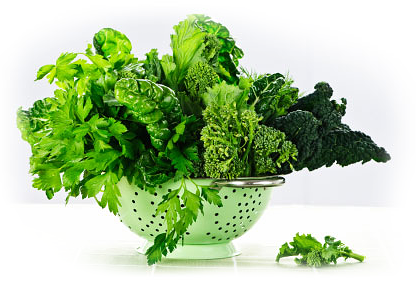 Magnesium is noted for closing calcium channels of nerve cells. Therefore, it reduces neuronal transmission.
Magnesium is noted for closing calcium channels of nerve cells. Therefore, it reduces neuronal transmission.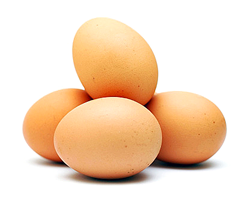 On one hand, the amino acid is used as a precursor in the synthesis of niacin, a B vitamin. How niacin can help relieve insomnia is discussed below.
On one hand, the amino acid is used as a precursor in the synthesis of niacin, a B vitamin. How niacin can help relieve insomnia is discussed below.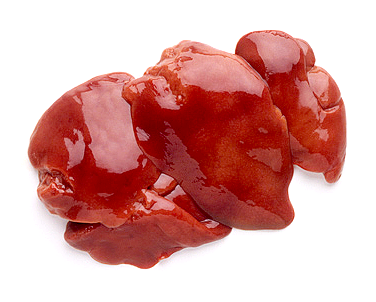 Foods Rich in B Vitamins
Foods Rich in B Vitamins